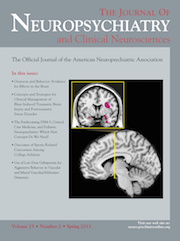Does the Immune System Act as a Self-Organized System in Multiple Sclerosis?
To the Editor: The immune system is a complex system involved in many biological processes to protect the body against foreign agents. It includes two main subsystems: innate and acquired. Innate immunity is responsible for the primary response provoked at the first encounter with an antigen. In this stage, many antibodies are secreted from specific B lymphocytes considering the shape of antigens. The acquired immune system, which is known as adaptive response, occurs after a similar invasion and quickly produces specific antibodies regarding the formed memory.1
On the other hand, distinguishing “self” cells from “non-self” cells is based on the system’s memory.1 Some changes in chemical environment around the cells such as viral and microbial infections and metabolic reactions would alter behavioral pattern in the immune system. According to this fact and idiotypic network theory,2 the way of defining self and non-self cells could not remain unchanged over time. Therefore, recognition of self and non-self–based on formed memory must change dynamically in such a system to be an adaptive self-organized system, in which its global behavior comes from interactions among the components of the system.
Multiple sclerosis (MS) is an autoimmune disease characterized by inflammation and oversecretion and maintenance of antibodies against self-antigens. According to the Remnant Epitope Generates Autoimmunity model (REGA),3 cytokine secretion by innate immune cells is considered as the main mechanism for inflammatory processes and for auto-antigen generation, that is, false detection of self-cells as non-self.4
According to the above-mentioned notes, we believe that, in MS, wrong detection of non-self-cells reflects the poor functioning of the innate immune system in memory formation of the adaptive system. Although current therapeutic researches are focusing on changes in the concentration of T-cells that secrete cytokine, we believe that the whole immune system may be considered as a connected network, in which the concentrations of secreted cytokines are more important than T-cell concentration. Based on this idea, changes in chemical conditions around the cells would dynamically alter the network structure by changing the internal interactions, that is, cytokine secretions. From this point of view, the immune system acts in a self-organized manner, in which internal positive and negative feedbacks give more adaptation ability to this network. Applying this idea would be promising to find novel treatment techniques. However, more experimental data and modeling studies are required to indicate whether our suggestion is plausible.
1 : The immune system as a model for pattern recognition and classification. J Am Med Inform Assoc 2000; 7:28–41Crossref, Medline, Google Scholar
2 : An interdisciplinary perspective on artificial immune systems. Evol Intel 2008; 1:5–26Crossref, Google Scholar
3 : Probing cytokines, chemokines, and matrix metallo-proteinases toward better immunotherapies of multiple sclerosis. Cytokine Growth Factor Rev 2011; 22:359–365Crossref, Medline, Google Scholar
4 : Role of the innate immune system in the pathogenesis of multiple sclerosis. J Neuroimmunol 2010; 221:7–14Crossref, Medline, Google Scholar



